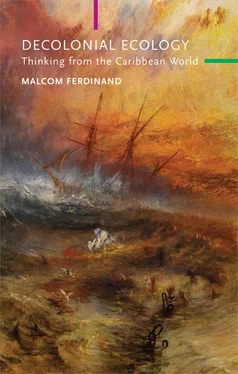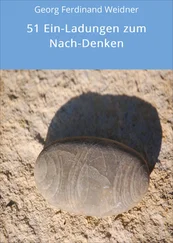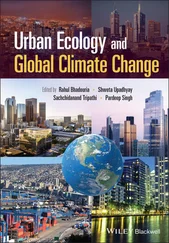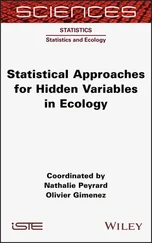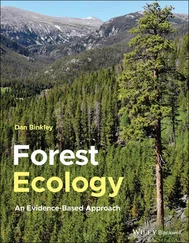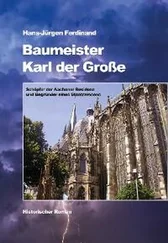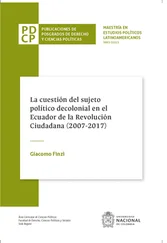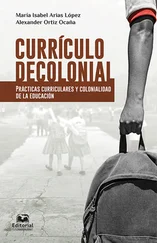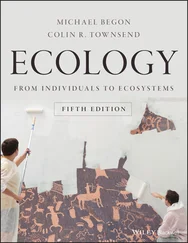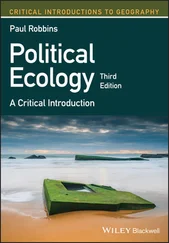19 19 Gabrielle Hecht, Being Nuclear: Africans and the Global Uranium Trade (Cambridge, MA: MIT Press, 2014), p. 20.
20 20 Ibid.
21 21 Jean Allman, “Nuclear Imperialism and the Pan-African Struggle for Peace and Freedom: Ghana, 1959–1962,” in Souls: A Critical Journal of Black Politics, Culture, and Society 10/2 (2008): 83–102; Esther Davis was the only French citizen to join the Sahara Protest Team; Frantz Fanon, The Wretched of the Earth, trans. Richard Philcox (New York: Grove Press, 2004), p. 41.
22 22 René Dumont, False Start in Africa, trans. Phyllis Nauts Ott (New York: Praeger, 1966); Robert Jaulin, La Paix blanche: introduction à l’éthnocide (Paris: Seuil, 1970); Serge Moscovici, De la nature, pour penser l’écologie (Paris, Métailié, 2002), p. 223; Céline Pessis (ed.), Survivre et vivre: critique de la science, naissance de l’écologie (Montreal: L’Échappée, 2014), pp. 41–5 (and see the essay “Nous sommes tous des Martiniquaises de quinze ans,” pp. 266–7).
23 23 Serge Latouche, The Westernization of the World: The Significance, Scope, and Limits of the Drive towards Global Uniformity, trans. Rosemary Morris (Cambridge: Polity, 2007), and Décoloniser l’imaginaire: la pensée créative contre l’économie de l’absurde (Lyons: Paragon-VS, 2011).
24 24 See Alexis Vrignon, La Naissance de l’écologie politique en France: une nébuleuse au cœur des années 1968 (Rennes: Presses universitaires de Rennes, 2017).
25 25 Serge Audier, La Société écologique et ses ennemis: pour une histoire alternative de l’émancipation (Paris: La Découverte, 2017); Dominique Bourg and Augustin Fragnière (eds), La Pensée écologique: une anthologie (Paris: Presses universitaires de France, 2014); Ariane Debourdeau (ed.), Les Grands Textes fondateurs de l’écologie (Paris: Flammarion, 2013); Fabrice Flipo, Nature et politique: contribution à une anthropologie de la modernité (Paris: Éditions Amsterdam, 2013); Alexander Federau, Pour une philosophie de l’Anthropocène (Paris: Presses universitaires de France, 2017).
26 26 Dominique Bourg and Alain Papaux (eds), Dictionnaire de la pensée écologique (Paris: Presses universitaires de France, 2015).
27 27 Malcom Ferdinand, “Subnational Climate Justice for the French Outre-mer: Postcolonial Politics and Geography of an Epistemic Shift,” in Island Studies Journal 13 (2018): 119–34; Olivier Gargominy and Aurélie Bocquet, Biodiversité d’Outre-mer (Paris: Comité français pour L’UICN, 2013).
28 28 Silyane Larcher, L’Autre Citoyen: l’idéal républicain et les Antilles après l’esclavage (Paris: Armand Colin, 2014); Audrey Célestine, La Fabrique des identités: l’encadrement politique des minorités caribéennes à Paris et New York (Paris: Karthala, 2018).
29 29 Kathryn Yusoff, A Billion Black Anthropocenes or None (Minneapolis: University of Minnesota Press, 2018), p. 105; Cornelius Castoriadis, The Imaginary Institution of Society, trans. Kathleen Blamey (Cambridge, MA: MIT Press, 1987), p. 26.
30 30 Pablo Servigne and Raphaël Stevens, How Everything Can Collapse: A Manual for Our Times, trans. Andrew Brown (Cambridge: Polity, 2020); Pablo Servigne, Raphaël Stevens, and Gauthier Chapelle, Another End of the World Is Possible: Living the Collapse (and Not Merely Surviving It), trans. Geoffrey Samuel (Cambridge: Polity, 2020).
31 31 Translator’s note: “Off-world” translates hors-monde, which could also be translated as “outside-world.” However, hors-monde expresses a separation from the world without assuming it is possible to be outside of the world, making the seemingly more straightforward translation choice entirely misleading. The English “off-world” is borrowed from science fiction and plays with the vocabulary of ship journeys used throughout this book, but other iterations such as “off-ground” for hors-sol also draw on the English sense of “off” found in words such as “offside” to describe an activity that is “out of play.” Other iterations of “off-” will be found throughout the book to translate hors- and all express an experience of being separate but not outside or apart.
32 32 Jared Diamond, Collapse: How Societies Choose to Fail or Survive (London: Penguin, 2005), p. 355.
33 33 Seloua Luste Boulbina and Jim Cohen (eds), “Décoloniser les savoirs,” Mouvements no. 72 (2012): 7–10; Samir Boumediene, La Colonisation du savoir: une histoire des plantes médicinales (Vaulx-en-Velin: Éditions des Mondes à faire, 2016).
34 34 Dominique Bourg, Une Nouvelle Terre (Paris: Desclée de Brouwer, 2018), p. 21.
35 35 Rudyard Kipling, “The White Man’s Burden,” McClure’s Magazine 12 (1899): 290–1.
36 36 W. E. B Du Bois, The Souls of Black Folk (New York: Penguin, 1996); Paul Gilroy, The Black Atlantic: Modernity and Double Consciousness (Cambridge, MA: Harvard University Press, 1993); Enrique Dussel, The Underside of Modernity: Apel, Ricoeur, Rorty, Taylor, and the Philosophy of Liberation, trans. Eduardo Mendieta (Atlantic Highlands, NJ: Humanities Press, 1996); Frantz Fanon, Black Skin, White Masks, trans. Richard Philcox (New York: Grove Press, 2008); Glen Sean Coulthard, Red Skin, White Masks: Rejecting the Colonial Politics of Recognition (Minneapolis: University of Minnesota Press, 2014).
37 37 Michel-Rolph Trouillot, Silencing the Past: Power and the Production of History (Boston: Beacon Press, 1995).
38 38 Amandine Gay, “La Crise d’une utopie blanche?” in Jade Lindgaard (ed.), Éloge des mauvaises herbes: ce que nous devons à la ZAD (Paris: Les Liens qui libèrent, 2018), pp. 157–68.
39 39 Dipesh Chakrabarty, “Postcolonial Studies and the Challenge of Climate Change,” New Literary History 1/43 (2012): 1–18; Chakrabarty, “The Climate of History: Four Theses,” Critical Inquiry 35/2 (2009): 197–22; Souleymane Bachir Diagne, “Faire humanité ensemble et ensemble habiter la Terre,” Présence Africaine 193/1 (2016): 11–19; Bachir Diagne, “Faire la ‘Terre totale’,” in Jérôme Bindé (ed.), Signons la paix avec la Terre: quel avenir pour la planète et pour l’espèce humaine? Entretiens du XXIe siècle (Paris: Unesco/Albin Michel, 2007).
40 40 Ann Laura Stoler, Duress: Imperial Durabilities in Our Times (Durham, NC: Duke University Press, 2016); Dorceta Taylor, Toxic Communities: Environmental Racism, Industrial Pollution, and Residential Mobility (New York: New York University Press, 2014).
41 41 See, for example, John R. McNeill, Mosquito Empires: Ecology and War in the Greater Caribbean, 1620–1914 (Cambridge: Cambridge University Press, 2010); Michelle Scobie, Global Governance and Small States: Architectures and Agency in the Caribbean (Cheltenham: Edward Elgar, 2019).
42 42 Richard Grove, Green Imperialism: Colonial Expansion, Tropical Island Edens and the Origins of Environmentalism, 1600–1800 (Cambridge: Cambridge University Press, 1996).
43 43 Megan Raby, American Tropics: The Caribbean Roots of Biodiversity Science (Chapel Hill: University of North Carolina Press, 2017).
44 44 Pablo Gomez, The Experiential Caribbean: Creating Knowledge and Healing in the Early Modern Atlantic (Chapel Hill: University of North Carolina Press, 2017).
45 45 Sherrie L. Baver and Barbara D. Lynch (eds), Beyond Sand and Sun: Caribbean Environmentalisms (New Brunswick, NJ: Rutgers University Press, 2006); Malcom Ferdinand, “Ecology, Identity, and Colonialism in Martinique: The Discourse of an Ecological NGO (1980–2011),” in Chris Campbell and Michael Niblett (eds), The Caribbean: Aesthetics, World-Ecology, Politics (Liverpool: Liverpool University Press, 2016); Rivke Jaffe, Concrete Jungles: Urban Pollution and the Politics of Difference in the Caribbean (Oxford: Oxford University Press, 2016); Eloise C. Stancioff, Landscape, Land-Change and Well-Being in the Lesser Antilles: Case Studies from the Coastal Villages of St. Kitts and the Kalinago Territory, Dominica (Leiden: Sidestone Press, 2018); Karen Baptiste and Kevon Rhiney, “Climate Justice and the Caribbean,” Geoforum 73 (2016): 17–80.
Читать дальше
